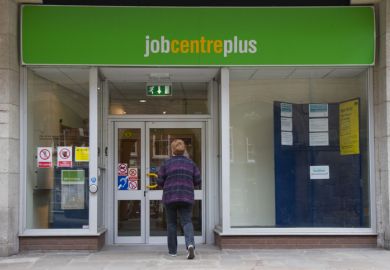In return, employers could offer bonuses to support graduate recruits’ student loan repayments, according to the Royal Society for the encouragement of Arts, Manufactures and Commerce’s (RSA) City Growth Commission.
It argues that universities’ public funding means that they have a responsibility to “power” metropolitan growth and to align themselves more closely with local economic priorities, warning that strong labour market flows among higher education leavers currently “present a challenge to matching supply and demand for graduate labour”.
London attracts large numbers of course finishers, while other cities offer more varied prospects and some struggle to retain graduates.
The commission’s report, UniverCities, suggests that local authorities and agencies should partner with higher education institutions to run “refreshers’ weeks” in the run-up to graduation to match students with jobs and help them find accommodation.
It also proposes that cities should launch centralised “graduate clearing” programmes which would pool graduates still looking for work and connect them with local companies that have vacancies.
These businesses could place recruits under “golden handcuffs” deals under which they would receive a bonus after several years’ service to be put towards student loan repayments, the report recommends.
Jim O’Neill, the chairman of the commission, argued that the proposals could help to improve the UK’s economic prospects, since 72 of its universities were based within the 15 largest cities.
“Relatively low numbers of graduates stay in the cities where they graduate, with many either disappearing back overseas or down to London to employ the fruits of their enhanced minds elsewhere,” he said.
“Surely it would be sensible to consider pursuing a number of initiatives to either help or encourage graduates to stay in the metro areas where they graduate, as a key ingredient to helping these cities prosper.”
Other proposals include the establishment of investment funds for higher education by councils and local enterprise partnerships, to fund research in universities that could help the area’s economy, and to address identified graduate skill shortages.
The commission says universities could do more to encourage entrepreneurship among their graduates by partnering with business networks, allowing sandwich years and placements on all courses, and by using their own funds to invest in spin-off enterprises.
There should be more flexibility on graduate entrepreneur visas for the UK’s largest cities, the report adds, suggesting that students could be made eligible for five years after they finish their course, rather than one, providing that their business would be active in the same urban area. This model should be rolled out across the UK if it proves successful, the commission suggests.
Register to continue
Why register?
- Registration is free and only takes a moment
- Once registered, you can read 3 articles a month
- Sign up for our newsletter
Subscribe
Or subscribe for unlimited access to:
- Unlimited access to news, views, insights & reviews
- Digital editions
- Digital access to THE’s university and college rankings analysis
Already registered or a current subscriber? Login




